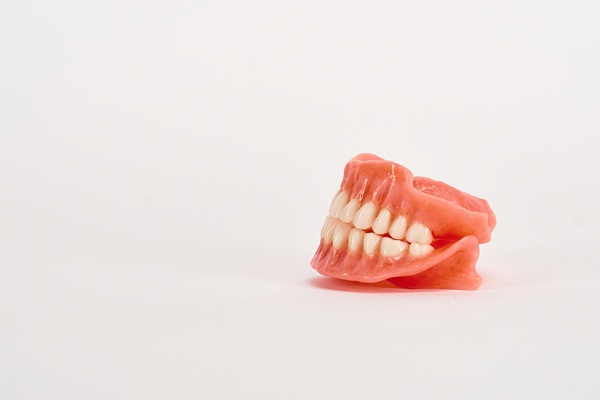Are Overdentures the Same as Implant Supported Dentures?

When someone loses teeth, implant supported dentures may be the right solution. Many people experience tooth loss, especially as they age, but most are not aware of all of the denture options available. Having the right dentures can make people feel better and increase their confidence. A dental professional can help a patient find what works best, but knowing the options ahead of time may allow the patient to be more involved in the process.
Understanding denture options
Overdentures
Overdentures are usually a viable option for patients who have lost some or all of either the top or bottom teeth and are designed to go over teeth. They do not necessarily have to go over natural teeth but do require a supporting structure, such as dental implants. A dentist works with the patient to ensure that the dentures fit properly over the tooth roots.
Implant supported dentures
Implant supported dentures are a special type of overdentures that are a possible option for those who have enough bone in the jaw to support implants. Many people like this option because the prostheses are typically more stable and attach to the implants instead of the gums, which may cause less rubbing and soreness. This type of dentures is most popular for the lower jaw but can be made for the upper jaw as well.
Going through the process
The first step to getting dentures is an initial consultation. The patient meet with a dental professional to find out the best option for the situation. It is a good idea to bring along a list of questions to ask. Patients should not be afraid to get involved in the decision-making process.
Getting implant supported dentures requires at least one surgery. The entire process may take up to a year. The dentist can give the patient a timeline based on the person’s needs. Once the implant surgeries are complete, the patient is fitted for the dentures. Some patients may take a while to adjust to the new prostheses.
Cleaning dentures
It is important to remove the dentures each evening for a thorough cleaning to avoid infections. Patients need to go in for regular checkups to make sure the gums are healthy. The patient should let the dentist know if there are any sore spots from the fixtures rubbing against the gums. If a patient has any pain or discomfort inside of the mouth, it is important to call the dentist right away as this could be a sign of infection.
Eating the right kind of food can help avoid damage to the implant supported dentures. To help the piece last as long as possible, do not eat food that is extremely hard or chewy. If the patient follows these guidelines, the prostheses should last for many years.
Conclusion
Losing teeth is not something people need to be ashamed of. Implant supported dentures can have smiles looking brighter than ever. Visit a dental professional for an initial consultation to find out your options and get started on the process.
Are you considering implant supported dentures in the Peabody area? Get more information at https://www.northside-dentalcare.com.
Check out what others are saying about our services on Yelp: Read our Yelp reviews.
Recent Posts
Missing one tooth or multiple teeth can make it harder to perform everyday functions. It can also make you feel self-conscious about smiling. Dental implants not only restore the function and appearance of your smile, but they also help restore your everyday oral health.Dental implants are artificial tooth roots surgically placed in a person's jawbone.…
Wear and tear make denture repair inevitable in the long run. This is why a general dentistry practice that deals with dentures should have in-house facilities for minor and moderate repairs. The practice should also have quick access to a dental lab in case a patient needs major repairs for their dentures. Knowing when to…
Dental implants can replace missing teeth using a combination of screwlike metal posts and dental crowns, bridges, or dentures. Many consider implants state-of-the-art teeth replacement. Though dental implants can be an effective way to restore your smile, it is important to ensure they are right for you and understand how they work.Dental implants can support…
For many individuals with missing teeth, dental implants are an effective way to restore the appearance and function of their smile. However, like any medical procedure, there are potential risks and complications associated with getting dental implants. While these risks are relatively rare, it is important for patients to be aware of them before undergoing…


